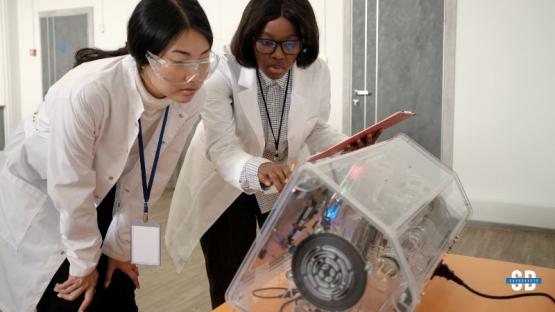Healthcare has always been at the forefront of innovation, but the last decade has ushered in a transformative era of high-tech solutions that are reshaping how we approach medicine, patient care, and treatment outcomes.
From robotics to artificial intelligence, modern technology is not just enhancing existing methods, it’s revolutionizing the very fabric of healthcare.
The Drive Toward Personalized Medicine
One of the key drivers behind this evolution is the growing demand for personalized medicine. Patients today expect treatments tailored to their unique genetic makeup, lifestyle, and health history. Technologies like genomic sequencing, AI-powered diagnostics, and wearable health monitors are helping healthcare providers deliver on these expectations. These tools enable earlier detection of diseases, more accurate diagnoses, and customized treatment plans that significantly improve patient outcomes.
Personalized medicine is not only enhancing patient experiences but also increasing the efficiency of healthcare systems by reducing trial-and-error approaches to treatment. As a result, patients receive better-targeted therapies that minimize side effects and improve recovery times.
Procedural Innovations: Robotics and Beyond
Another area where technology is making a big impact is in procedural advancements. Minimally invasive surgeries have become the norm thanks to robotic surgical systems like the da Vinci Surgical System. These robots assist surgeons with high-precision movements, leading to faster recovery times, reduced risk of infection, and less post-operative pain for patients.
Meanwhile, augmented and virtual reality technologies are being integrated into medical training and surgery planning. VR simulations allow surgeons to practice complex procedures in a risk-free environment, while AR overlays provide real-time data during operations to enhance decision-making and precision.
Transforming Dentistry with Digital Solutions
The dental industry, too, is undergoing a tech-driven transformation. Digital dentistry is on the rise, making procedures quicker, more accurate, and more comfortable for patients. A standout innovation is the development of Dental Milling Machines, which allow dental professionals to craft crowns, bridges, and other restorations with extreme precision. These machines reduce the time it takes to complete dental work and ensure a level of customization and fit that was previously unattainable.
Dentists can now offer same-day restorations with the integration of 3D imaging, CAD/CAM technology, and chairside milling systems. This not only saves time for patients but also boosts practice efficiency and improves the overall patient experience.
The Rise of Telemedicine and Remote Monitoring
Telemedicine has emerged as one of the most significant high-tech solutions in recent years, especially following the global COVID-19 pandemic. Patients can now consult with doctors and specialists from the comfort of their homes, improving access to healthcare for those in rural or underserved areas.
Beyond virtual consultations, remote patient monitoring devices like wearable heart monitors and blood glucose trackers allow healthcare providers to collect real-time health data. This continuous flow of information supports better management of chronic conditions, enables early intervention, and reduces the need for frequent in-person visits.
Artificial Intelligence: A Game Changer for Healthcare
Artificial intelligence (AI) and machine learning are perhaps the most groundbreaking advancements in healthcare technology. AI-driven software can quickly analyze massive amounts of data, uncovering patterns and insights that would take humans years to detect.
In radiology, AI algorithms help identify tumors, fractures, and other anomalies with remarkable accuracy. In drug development, machine learning models predict how new compounds will behave in the body, dramatically speeding up the process of discovering and approving new medications. AI is even being used to forecast patient outcomes and optimize hospital resource management, making healthcare more proactive and efficient.
Challenges and the Road Ahead
While the benefits of high-tech healthcare solutions are undeniable, they do come with challenges. Data security and patient privacy remain significant concerns, especially as more health information moves to digital platforms. High costs associated with acquiring and maintaining advanced technology can also be a barrier for smaller healthcare providers.
Additionally, there is a need for regulatory bodies to keep pace with technological innovations, ensuring that new tools are safe, effective, and equitable. With thoughtful implementation and continuous innovation, however, the future of healthcare looks brighter than ever.



